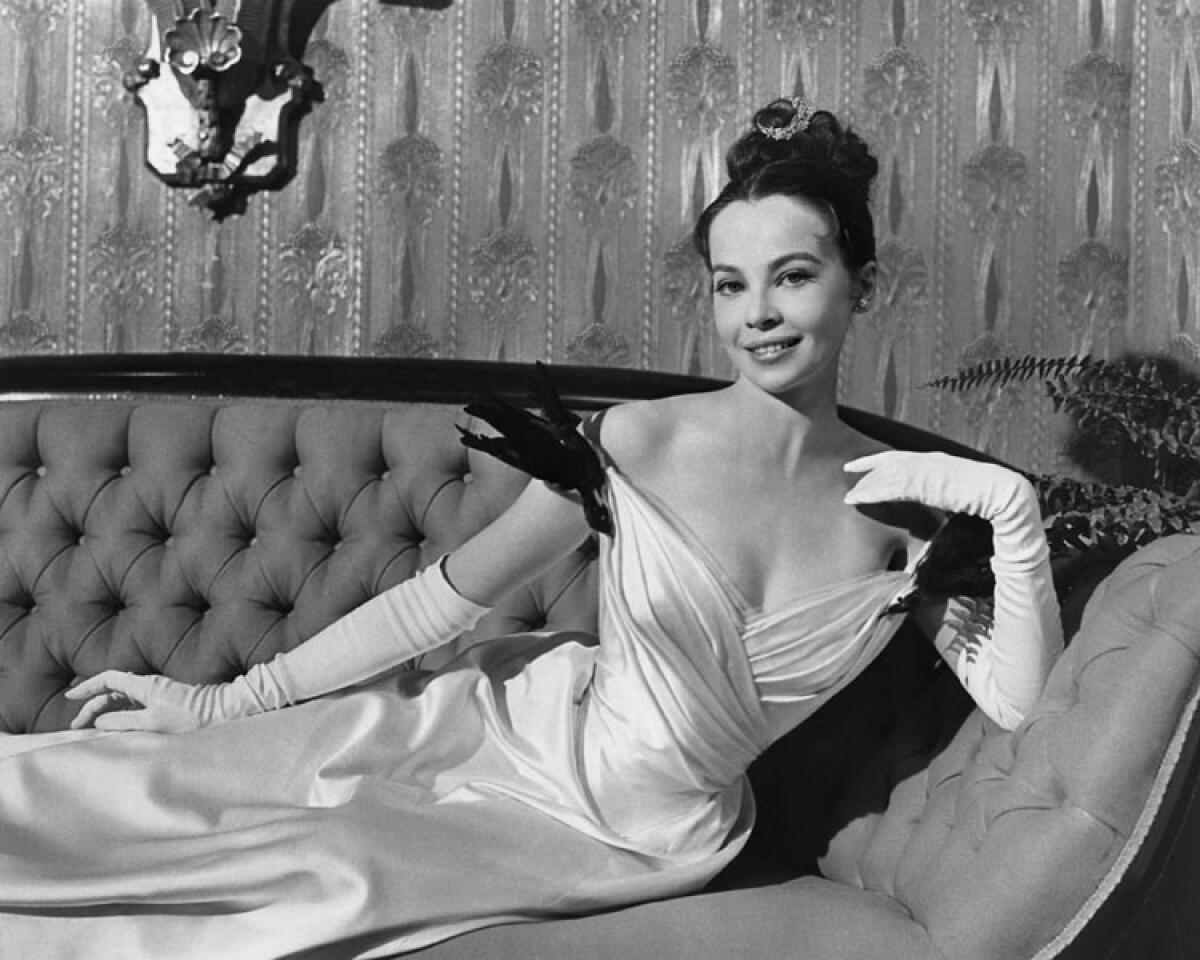From the Archives: ‘Gigi’ --- Naughty, but always very nice

- Share via
Hollywood, which so often doesn’t, beats the French at their own game in “Gigi.” Mais oui! — the game of love (what else?).
You have a treat in store. It is a breathlessly lovely thing to look at, with exteriors filmed in Paris and interiors to match, as designed and dressed by Cecil Beaton, at the MGM studio here. The process is CinemaScope and Metrocolor; and the French have really extended themselves in providing traditionally great landmarks to meet the big-screen promise — the Bois on a Sunday afternoon, Maxim’s of “Merry Widow” fame, a restored Palais de Glace for skaters.
And beautiful women!
“Gigi” is also enchanting aurally. Successively — and successfully — a novel by Colette, a French film of 1950, with Daniele Delorme, and an international stage hit (Leslie Caron in London, Audrey Hepburn in New York), it is now a movie with music ... and what music! Lyrics as well as screenplay are by Alan Jay Lerner and the melodies are by Frederick Loewe; and, in an entirely different milieu, gay Paree at its gayest, they have done as delightful a service as they performed for Shaw’s London in “My Fair Lady.”
Miss Caron is top-starred as Gigi. With her are Maurice Chevalier, the perennial spirit of the boulevard himself, as Honore Lachaille; Louis Jourdan as his nephew, Gaston; and Isabel Jeans and Hermione Gingold as Gigi’s aunt and grandmamma, respectively. Plus Eva Gabor, the gloriously unfaithful mistress of Jourdan; Jacques Bergerac as her “skating instructor,” and John Abbott as a manservant.
Equally Unbeatable
The producer is Arthur Freed, the nonpareil of musicals, and the director Vincente Minnelli, who at his best is equally unbeatable.
Together they have achieved a tasteful, discreet and never-more-than naughty realization of a delicately indelicate subject that could easily have slipped into the disagreeable and unpleasant — as, indeed, the French film of 1950 did.
The theme is one with which the late Colette was frequently preoccupied: the bringing up of a little girl for l’amour. In the movie Gigi’s mamma, herself preoccupied (with trilling scales), is heard but not seen. Gigi’s education in the facts of life has been entrusted to aunt and grandmother; all their arts, and their instruction in them, are directed toward pleasing the male.
Gigi is taught how to walk and to sit; the proper way to pour coffee, to savor the bouquet of a wine or a cigar and to appraise jewels (approvingly — “as long as they’re not second-rate”).
When the time comes, when she is ready, an “arrangement” will be made for the proper (i.e., correct) man to “take care of her.” In the manner, of course, to which she is not accustomed.
In Gigi’s case the situation seems ready-made. Jourdan, playing Gaston, a most eligible man-about-town, is a regular visitor at grandmamma’s, where he finds refuge from his worldly circle and comfort in her wisdom — and home cooking. To him the petite Miss Caron is just a schoolgirl, a kid, and he brings her bonbons. It is the aunt, Miss Jeans (and a superbly tongue-in-cheek performance she gives) who first realizes the latent possibilities in the situation — and puts the bee into grandmamma’s bonnet.
Nostalgic Note
The nostalgic note is sounded by Miss Gingold, the grandmamma, who long, long ago had a brief whirl with Chevalier, and by Chevalier, himself. They have a wonderful colloquy-duet together — “Ah, Yes! I Remember It Well” — in which he tries politely but unsuccessfully to recall the details of that old romance.
In other moments Chevalier sets the stage, acts as narrator and otherwise confides in the audience. There are his mischievous “Thank Heaven for Little Girls” and his philosophical soliloquy, “I’m Glad I’m Not Young Any More,” as well as his cheery answer to Jourdan’s youthful protest against life, “It’s a Bore.”
Jourdan Charms
Jourdan displays all the charm he did in “The Swan” and more. To him falls “She Is Not Thinking of Me” — thought-sung as, cynically, he eyes the coquetting Miss Gabor, and the pensive “Gigi,” which may well outrank all comers as ballad of the year.
Miss Caron, prettier than and at least as winsome as she has ever been before, brings simplicity to “I Don’t Understand the Parisians” and “Say a Prayer for Me Tonight” and shares the merry “The Night They Invented Champagne” with Jourdan and Miss Gingold.
The ending is happily fairytale. Innocence triumphs over sophistication, the eternal verities are satisfied and love conquers all. It couldn’t happen to a nicer menage.
More to Read
Only good movies
Get the Indie Focus newsletter, Mark Olsen's weekly guide to the world of cinema.
You may occasionally receive promotional content from the Los Angeles Times.










